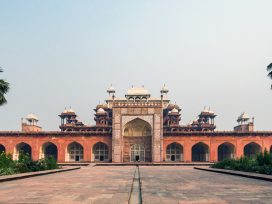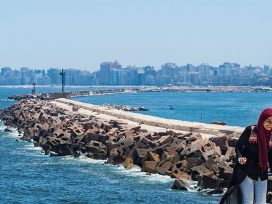“Multiculturalism has totally failed”. German Chancellor Angela Merkel’s recent blunt comments on the fiasco of German race relations has, for many, injected a welcome dose of reality into the debate. I have been a critic of multiculturalism from well before it became fashionable to be one. Yet I am wary of Merkel’s criticisms. For hers is an assault not so much on multiculturalism as on immigration, and on immigrants.
Merkel’s comments came as part of a wider debate taking place over the place of Turkish migrants in German society. Former Bundesbank official Thilo Sarrazin’s controversial book Deutschland schafft sich ab – “Germany abolishes itself” – which argues that Germany is in terminal decline because of the “Islamization” of the nation, has become a bestseller. Bavarian state premier Horst Seehofer, whose Christian Social Union is one of three parties in Merkel’s ruling coalition, argued recently for a halt of Muslim immigration. The family affairs minister Kristina Schroeder has condemned the anti-German “xenophobia and racism” of Turkish communities. Faced with state elections next year, and a possible leadership challenge, Merkel has herself joined this rancorous chorus.
In one sense Merkel is right. Germany’s multicultural policies have been a disaster and should be scrapped. But the failure of multiculturalism – and indeed its introduction – has little to do with immigrants. Immigrant groups have actively resisted such policies as pernicious and destructive. To understand why, we need to retrace the story of postwar immigration to Germany.
Like many western European nations, Germany faced an immense labour shortage in the post-war years and actively recruited foreign workers, initially from Italy, Spain and Greece, and then from Turkey. These workers came not as immigrants, still less as potential citizens, but as Gastarbeiter or “guest workers”, who were expected to return to their country of origin when no longer required to service the German economy.
Over time, however, immigrants became transformed from a temporary necessity to a permanent presence. This was partly because Germany continued relying on their labour, and partly because immigrants, and more so their children, came to see Germany as home. But the German state continued to view them as outsiders and to refuse them citizenship. There are nearly 4 million people of Turkish origin in Germany today. Barely half a million have managed to become citizens. Nor is it just first generation immigrants who are denied citizenship; their German-born children are excluded too.
Instead of creating an open society, into which immigrants were welcome as equals, German politicians from the 1980s onwards dealt with the “Turkish problem” though a policy of multiculturalism. In place of citizenship and a genuine status in society, immigrants were “allowed” to keep own culture, language and lifestyles. The consequence was the creation of parallel communities. The policy did not so much represent respect for diversity as provide a means of avoiding the issue of how to create a common, inclusive culture.
As a consequence of multicultural policies, Turkish communities became dangerously inward-looking. Without any incentive to participate in the national community, many did not bother learning German. First generation immigrants were broadly secular, and those that were religious wore their faith lightly. Today, almost a third of adult Turks in Germany regularly attend mosque, a far higher rate than among Turkish communities elsewhere in western Europe, and higher than in most parts of Turkey. First generation women almost never wore headscarves. Many of their daughters do.
Not only were Turks isolated from mainstream German society, they were also estranged from the communities from which they had originally emigrated, and from the traditional institutions of Islam. Combined with their growing religiosity and inwardness, the increasing isolation of second generation German Turks from social structures in both Germany and Turkey made some more open to radical Islamist tendencies. The recent news of German jihadis in Afghanistan was the inevitable consequence.
At the same time as Germany’s multicultural policies encouraged immigrants to be at best indifferent to mainstream German society, at worst openly hostile to it, they also made Germans increasingly antagonistic towards Turks. The sense of what it meant to be German was in part defined against the values and beliefs of the excluded migrant communities. And having been excluded, it has become easier to scapegoat immigrants for Germany’s social ills. A recent poll showed that more than a third of Germans think that the country is “over-run by foreigners” and more than half felt that Arabs were “unpleasant”.
Germany has taken a different path to a multicultural society from a country like Britain. In Britain, immigrants arrived not as guest workers but as British subjects. They were excluded from mainstream society not by being deprived of citizenship but because of racism. The response of the British authorities to such exclusion was, however, the same as that of German authorities – the encouragement of minority groups to express their identities, explore their own histories, formulate their own values, pursue their own lifestyles.
In Germany, the formal denial of citizenship to immigrants led to the policy of multiculturalism. In Britain, the promotion of multicultural policies led to the de facto treatment of individuals from minority communities not as citizens but simply as member of particular ethnic groups. The consequence in both cases, as in virtually every western European nation, has been the creation of fragmented societies, the alienation of many minority groups and the scapegoating of immigrants.
Part of the reason that we find ourselves in this mess is that the debate about multiculturalism has become conflated with the debate about immigration. On the one side, many people argue, as Angela Merkel does, that immigrants have helped create social disunity. On the other side, many feel they can defend minority rights only by clinging to multicultural policies. Both sides are wrong.
Immigration has been a great boon, helping create societies that are less insular, more vibrant, more cosmopolitan. It is not immigrants who have created fragmented societies, but rather the multicultural policies designed to manage those immigrants. To find a way out of our current morass, we need to separate the debate about multiculturalism from that about immigration. It is time to ditch multiculturalism but celebrate immigration.






